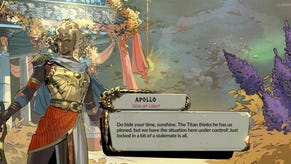Microsoft's Activision Blizzard deal has deeper implications for video games than you think
Corporate monopolies might be inevitable, but they also aren't good
When I held that monkey's paw and wished for more games to appear on Game Pass, I didn't mean like this! I don't know if anyone has been brave enough to come out and say this, but Microsoft buying Activision Blizzard is... problematic. Even before you consider the serious and unresolved allegations of workplace misconduct at ActiBlizz, there's no easy "this is good, actually" point of view to have here.
Even if you cast Xbox's Phil Spencer as a shining Herculean figure, coming to clean out the mountain of shit from Bobby Kotick's Augean stable, you have to concede that he's blasting it with a hose of money. Kotick, Activision Blizzard's CEO, will have pocketed several billions from the $68.7 of them involved in this deal. But even if I wasn't angry about that amount of money existing to be given to one person (I filed and paid my 2020/21 tax return literally yesterday), and even if I wasn't grimly unsurprised about how little the market cares about allegations of sustained and systemic abuse, and even if ActiBlizz had an unblemished record, this sale would be bad. Activision Blizzard being the centre of a hurricane of lawsuits and sexual harassment accusations makes it worse, of course. But this monopoly, the growing consolidation of game developers into a small handful of large, risk averse, homogenised companies is not healthy for us, or the industry, in the long run.
We recently made a topic tag to, ahem, consolidate our articles about the ongoing consolidation of the games industry, and boy has it been ramping up in the past year or so. With this new acquisition, Microsoft becomes "the third-largest gaming company by revenue, behind Tencent and Sony." Kotick said in an interview about the acquisition that "there’s more competition than we’ve ever seen for games" because, I guess, Facebook want to do games now? But...
In the last year, Tencent acquired Turtle Rock and Sumo Digital, as well as stakes in Bohemia Interactive, Dontnod Entertainment and Remedy, to go along with majority stakes in Klei, Riot, and a 40% stake in Epic Games, among many others - including a 5% stake in ActiBlizz. In 2019, Microsoft bought Double Fine, before making another splashy acquisition of Bethesda in 2020, and still they hungered for more.

And make no mistake: this is a shitshow. In the short term, you'll get more games showing up in your Game Pass library. Happy days. Maybe Microsoft will remaster some weird old retro game that ActiBlizz had the rights to but had forgotten about in favour of making endless Call Of Duty games. Something you liked when you were a kid. Something that'll get you to sign up for £1 / $1 first month to Game Pass - and then you're in the ecosystem.
But long term, monopolies cause stagnation. When there are only a few companies in competition with each other, consumer prices go up because there's no incentive for them to keep them down. What are you going to do, go to the other digital games library with a subscription service? This can, in some cases, lead to lower average wages for the industry by the same token. What are developers going to do, go and work for that other studio that their company also owns, with the same salary scale?
Big companies are often more risk averse, too, leading to less innovation. Decisions are made to strengthen the market position they already have, because in a monopoly you don't need to innovate or take risks to try and gain position. This isn't going to free up a bunch of developers to work on weird new IP passion projects for ID@Xbox. They'll need some games to fill up Game Pass, sure, but look me in the eye and say Microsoft is going to bankroll a load of cool experimental stuff that has a 50/50 chance of flopping. You can't! They'll stick to sequels of middle sized games like Psychonauts 2 and Hellblade 2 that they know will represent decent ROI based on prior performance. But I worry how it will affect the diversity of games we'll get in the future. Will Obsidian be able to make the neo-classic RPGs they like when Bethesda is whirring away on The Elder Scrolls and Fallout? Surplus developers are more likely to shuffled into the big blockbuster mines over the ideas lab, because Microsoft will probably continue to make a Call Of Duty game every year until the heat death of the universe.

I will eat my words if Asobo suddenly announce that they're ditching A Plague Tale and have hired some unknown devs to make a hybrid card battler/meta platformer set in space, or something. But I reckon I'll still be having pizza and chips for my tea. Yum yum.
Thus, the bar for what is creative or innovative or even what is good is collectively lowered. Don't take my word for it, just look at cinema. I like Marvel films, but I don't like everything being a Marvel film now. It has created a cultural context where people can watch Eternals - a film comprised almost entirely of characters stating their motivations out loud because it couldn't figure out subtext despite a two and a half hour run time - and somehow think it is genuinely very good. The games industry is already too good at driving franchises so far into the ground they could be extracted as a fossil fuel, and consolidations like Microsoft buying Activision Blizzard is likely only going to make it worse.
Like Graham said when he wrote about consolidation in the summer of 2019, I'm not mad at any individual developers here. I'm glad they all have jobs. I work for a company inside a company myself. But a world of huge creative monoliths is not a desirable one to be in. Now, more than ever, is the time to support small creatives. Look at projects like the Indiepocalypse zine and see if you have a couple of bucks to spare. $68.7 billion just went on a World Of Warcraft machine.










